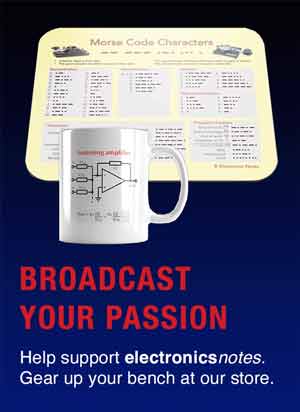What is a Power Analyzer
Power analyzers, or power energy analyzers are used for measuring power consumption, loss, efficiency, etc., of electrical and electronic devices.
Power Analyzer Includes:
Power analyzer
Power analyzers are test instruments that are becoming increasingly important within the electrical and electronics industries as all aspects of power used by equipment large and small becomes a greater issue.
Power analyzers are able to measure a variety of parameters associated with power consumption and generation at frequencies that range from 50 / 60 Hz right up to many kilohertz.
Power analyzers are used for measuring a host of aspects of electrical power for applications which include testing power electronics, inverters, motors and drives, lighting, home appliances, office equipment, power supplies, industrial machinery and more.
Electrical power analyzers are manufactured by a variety of different test equipment manufacturers to address the growing demand for measuring all aspects of power and its supply and use.
Although data acquisition and oscilloscope-based power measurement tools are available, power analyzers are designed to provide the measurements that are required for testing devices that generate, transform, or consume electricity. In this way, a power analyzer is able to more exactly meet the needs of engineers needing to measure various aspects of electrical power.
Power analyzer measurements
Power analyzers can make a variety of measurements dependent upon the manufacturer and the model, but typically power analyzers are likely to be able to measure parameters including: voltage; current; power; peak, mean and RMS parameters; harmonics; phase, and a variety of other parameters.
Some power analyzers are intended for high power measurements and may even have special high power sensors, whereas others may be intended for measuring the standby current parameters for various items of equipment.
In view of the many applications for these power analyzers, modern types often have data logging capabilities. Often they can stored the data on board to be downloaded at a later date of displayed in screen - the screens on some power analyzers can be quite large and able to provide very detailed data. It is also normally possible to communicate the data, often via Ethernet or USB with a computer so that further analysis can be undertaken.
As power energy analysers can often be used to monitor equipment over a long period of time, possible under a host of different conditions, the data communication capabilities are of great use.
Also it is often possible for the power analyzer to be controlled remotely. This enables the instrument to be located close to the item under test, whilst the computer and the engineer are located elsewhere. This can be very useful when an item is undergoing temperature or vibration testing.
With many more items being controlled by electronics and also many of the specifications for electrically powered equipment becoming more stringent, the use of power meters is on the increase. Along with this trend, their capabilities are also increasing to meet the growing requirements.
 Written by Ian Poole .
Written by Ian Poole .
Experienced electronics engineer and author.
More Test Topics:
Data network analyzer
Digital Multimeter
Frequency counter
Oscilloscope
Signal generators
Spectrum analyzer
LCR meter
Dip meter, GDO
Logic analyzer
RF power meter
RF signal generator
Logic probe
PAT testing & testers
Time domain reflectometer
Vector network analyzer
PXI
GPIB
Boundary scan / JTAG
Data acquisition
Return to Test menu . . .



